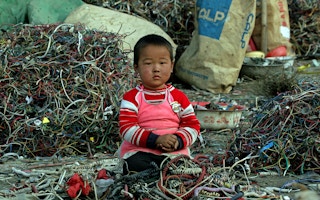The world is facing a plastic pollution catastrophe. The environmental crisis is found to be comparable to that of climate change at current rates of plastic production and a study in the US estimated that 8.3 billion tonnes of plastic was mass produced in 2017. The figure is projected to reach 34 billion in 2050.
The clarion call was sounded and echoed by Sir David Attenborough in the 2017 release of the epic BBC documentary sequel - Blue Planet II, highlighting the pervasive impacts it has on the ocean, wildlife and public health. The World Bank estimates that by 2100, global waste will triple to exceed 11 million tonnes per day.
How have governments, businesses and individuals responded? Here are 5 of the top stories from the world of waste this year.
1. Putting a price on plastic
As plastic pollution came into focus this year, companies started to take notice. Two new initiatives, The Plastic Offset Programme and Plastic Neutral certification, offered companies an opportunity to mitigate their plastic footprint and support efforts to tackle plastic pollution. Developed by two separate companies – Starboard and Plastic Collective respectively – the initiatives provide assistance in developing an “internal price” on plastic as well as to track and manage the amount of plastic waste generated.
2. Saving the seas, turning the tide
In a bid to save our world’s seas from irreversible damage, the United Nations launched a global campaign that called for action to halt the use of microplastics and single-use plastic disposables. Dubbed the Clean Seas Campaign, it has garnered the commitment of 10 countries so far. Pledges include taxing single-use plastic bags in Uruguay and measures to dramatically reduce single-use plastics in Costa Rica.
Currently, plastic comprises 80 per cent of all litter in oceans and contains as much as 51 trillion particles of microplastic.
3. China shutting its doors to waste imports
The world was forced to rethink its waste management strategy when China informed the World Trade Organization that it would no longer be accepting waste imports by the end of 2017. In 2016, China accepted 7.3 million tonnes of discarded plastics from developed countries including the UK, the US and Japan and 27 million tonnes of waste paper, to recycle and use in local industry. Previously reliant on imports, China now has its own domestic supply of recyclable waste and will be stricter on the quality of waste coming in. The country is also facing increasing pressure to tackle environmental pollution at home.
4. Rise of the e-waste monster
A new joint report by ITU, UN University and International Solid Waste Association highlighted the threat that electronic waste poses to the environment and public health. The report highlighted a rising trend in the improper and unsafe treatment and disposal of e-waste, through methods like burning and dumping. It also pointed out the business case for recycling e-waste, which is estimated to contain $55 billion worth of recoverable materials.
In Singapore, a new electronic waste recycling programme was launched on World Environment Day. Started by telecommunications firm Singtel and postal service company SingPost, the ReCYCLE Initiative allows users to drop off their electronic waste at Singtel shops and SingPost offices islandwide, or mail it for free using special ReCYCLE envelopes.
5. Fighting food waste
A mobile app launched in Britain provided an alternative to throwing food away. The OLIO app allows people to post pictures of the excess food they would like to share and get matched to others who want it. Matched users can then message each other to arrange for pick-ups. The app has currently 322,000 registered users in the UK and has shared more than 400,000 food items ranging from fresh produce to packs of pasta, juice and ready meals.
Meanwhile in Australia, SecondBite is pitching in to reduce food waste and at the same time benefit the local community. The non-profit organisation works with over 1,200 community food programmes around Australia to redistribute surplus fresh food donated by farms, wholesalers, supermarkets and caterers to people who need them.
This story is part of our Year in Review series, which looks at the top stories that shaped the business and sustainability scene over the last 12 months.





















